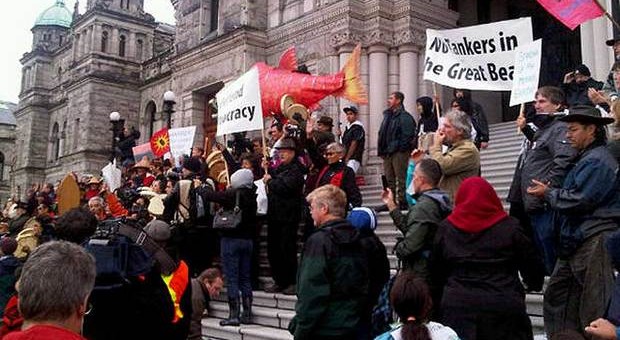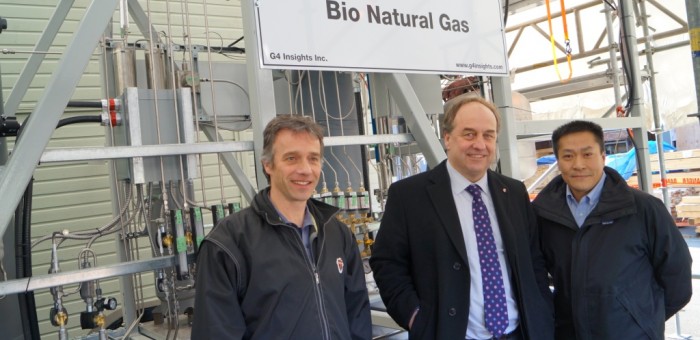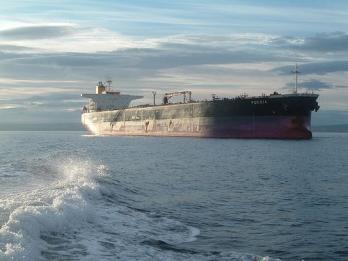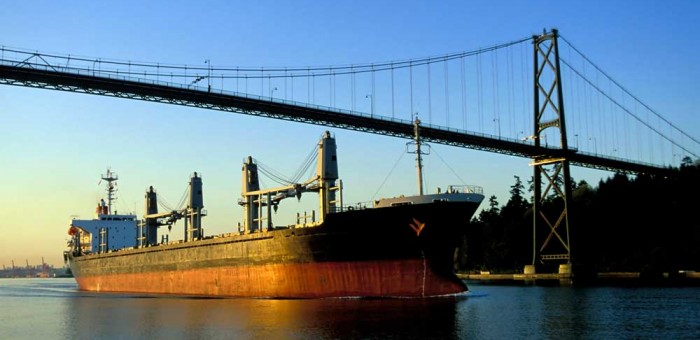Pipelines
Media Release – BC Greens call for 6th condition – No DilBit on BC Coast
Media Statement December 19, 2013
BC Greens call for sixth condition for heavy oil pipelines
For immediate release
Victoria BC – In response the NEB Joint Review Panel’s final decision to approve Enbridge’s Northern Gateway Pipeline, BC Green Party MLA for Oak Bay-Gordon Head, Andrew Weaver, and BC Green Party Leader Adam Olsen are calling on the BC Government to establish a 6th condition for support of heavy oil pipeline projects: A moratorium on dilbit transport along the B.C. coast.
“We are quite disappointed with the JRP report in respect to the risks related to dilbit,” says Andrew Weaver. “The key issue is dilbit because it’s different from refined oils that float on the surface–up to 50% of dilbit sinks making clean-up significantly more difficult if not impossible. We have no way of knowing what would happen if dilbit were to spill on our coast. The science isn’t there to allow for effective spill response and this was not reflected in the report.”
According to the report “Northern Gateway and other hearing participants did not agree on the behaviour of diluted bitumen spilled into water.”
Meanwhile, the Department of Fisheries and Oceans has made it clear that “Behaviour models specific to dilbit spills do not exist, and existing commercial models for conventional oil do not allow parameter specific modifications.”
“Clearly the report did not do an adequate job of addressing the risks of dilbit on our coast.” says Adam Olsen. “We have a choice as British Columbians: We can continue to play Russian roulette with our pristine coastline, or we can stand up for British Columbia and put a moratorium on dilbit transport along our coast.”
Mat Wright – Press Secretary Andrew Weaver MLA
mat.wright@leg.bc.ca
1 250 216 3382
Media Statement: Northern Gateway Conditional Approval ‘Deeply Disturbing’
Media Statement December 19, 2013
Northern Gateway, Joint Review Panel – Conditional ‘Yes’
For immediate release
Victoria BC – Today the National Energy Board’s Joint Review Panel released its report to the Federal Cabinet on Enbridge’s proposed Northern Gateway Pipeline. The panel’s conditional ‘yes’ is deeply concerning, considering the opposition by the BC Government, First Nations, environmental groups and the majority of the people of the province.
However, it is the 209 conditions that apply for the project to proceed which require emphasis. The Federal Cabinet must ensure that these conditions will be fully met before approving the project. It is unclear how the marine spill response conditions can be fully met, given the lack of scientific research and understanding of how diluted bitumen behaves in a marine environment.
“To date, not a single oil spill response study has adequately accounted for what would happen if DilBit were to spill in the ocean. The BC Government has said they require world class, effective spill response capacity, but don’t yet know how they will evaluate this. How can we possibly gauge how well prepared we are for a DilBit spill if the science, the studies and the evaluative criteria don’t even exist?” Andrew Weaver MLA
The question remains if the recommendations will meet the five requirements outlined by the BC Government, or even if the Northern Gateway Project itself can satisfy the conditions outlined by the Joint Review Panel. The Union of British Columbia Indian Chiefs remain firmly opposed, and their participation is vital for the project to move forward.
“It is deeply concerning that the Joint Review Panel has recommended the approval of the Northern Gateway Pipeline. The vast majority of British Columbians have made it clear they are opposed to the pipeline. My question to the Christy Clark is: Will you stand up for BC like you promised during the election and stop this pipeline, or will you stand by while the Federal government impose its will on our province?” Adam Olsen, Interim Leader BC Green Party
Mat Wright – Press Secretary Andrew Weaver MLA
mat.wright@leg.bc.ca
1 250 216 3382
Jobs, Economy and Northern Gateway
Photo above: Matt Babicki and Edson Ng, G4 Insights Inc.
The National Energy Board’s Joint Review Panel (JRP) has now released its final report approving the Enbridge Northern Gateway pipeline project. The project would see 525,000 barrels of the heavy oil diluted bitumen (dilbit) transported across British Columbia each day and loaded onto super tankers for shipment to international refineries. The project is yet another manifestation of a pattern of digging up Canada’s raw resources and shipping them to other countries with no value-added manufacturing or refining done locally. Yet what makes this proposal particularly problematic is the significant economic and environmental risk that we in B.C. face, should a spill occur.
If you look at the numbers, B.C. is projected to receive roughly $1.2 billion in tax revenue from the Northern Gateway pipeline over the span of 30 years—that’s only $40 million a year towards a $44 billion provincial budget. Yet, according to the UBC Fisheries Economic Research Unit, the economic cost of a single major tanker spill is estimates to be between $2.4 and $9.5 billion—that’s between 2 and 8 times more than the total 30-year economic benefit of the pipeline—in one spill.
Meanwhile, to date no oil spill response study has been able to account for dilbit; studies have only analyzed what would happen in the case of a spill from more commonly shipped crude oil. Unfortunately dibit is unlike other crude oils in that whereas most oils will float on the surface, up to 50% of dilbit will sink. Once that happens, we don’t know where it will go, how it will interact with currents and tides or how we could reasonably clean it up. In some areas it is projected that only 3% of floating crude oil could be cleaned up in the event of a spill. That number is already dismally low. With dilbit it would be even lower. According to the Department of Fisheries and Oceans’ own recent submission to Treasury Board: “Behaviour models specific to dilbit spills do not exist, and existing commercial models for conventional oil do not allow parameter specific modifications.”
Yet, we have an opportunity now to shift away from our old economic model of selling our raw resources solely for short-term profit and instead position ourselves for the long-term.
Let me offer two examples.
If we are going to develop the tar sands, and if we must transport oil along our coast, then at the very least let’s refine it first. This would offer two benefits: First, it would offer greater economic benefit for all British Columbians, as we would benefit from a value-added refining and spin-off petrochemical industry instead of shipping those jobs to Asia. Second, it would significantly decrease the environmental impact of a marine-based oil spill, as refined oil products (such as gasoline, diesel, or jet fuel) are much easier to clean up than dilbit. Let me be clear, this on its own is not an ideal solution and it does not protect us from the ecological consequences of a marine-based oil spill, but it certainly mitigates the risk when compared to shipping dilbit.
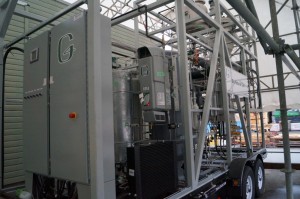 However, building a future economy based solely on the exploitation of a depleting resource will not steer us towards the low-carbon pathway that so many other nations are choosing to follow. That’s why British Columbia should seize the opportunity of promoting the expansion of our clean technology (cleantech) industry. With our abundance of renewable natural resources, our highly educated workforce, our-business friendly tax structure and our reputation for innovation, British Columbia is uniquely positioned to become a leader in this sector—a sector that focuses on the production, storage, transmission and end-use of renewable energy. Just yesterday I toured Burnaby-based G4 Insights Inc’s portable thermochemical facility designed to produce compressed natural gas for vehicular transport from wood waste. We need to grow our nascent cleantech companies, like G4 Insights, rather than allow them to be scooped up and exported to the US. The cleantech sector offers long-term, high-paying and local jobs. Yet developing this industry to its full potential requires the market to be sent a strong signal from government that this is the direction we want to head.
However, building a future economy based solely on the exploitation of a depleting resource will not steer us towards the low-carbon pathway that so many other nations are choosing to follow. That’s why British Columbia should seize the opportunity of promoting the expansion of our clean technology (cleantech) industry. With our abundance of renewable natural resources, our highly educated workforce, our-business friendly tax structure and our reputation for innovation, British Columbia is uniquely positioned to become a leader in this sector—a sector that focuses on the production, storage, transmission and end-use of renewable energy. Just yesterday I toured Burnaby-based G4 Insights Inc’s portable thermochemical facility designed to produce compressed natural gas for vehicular transport from wood waste. We need to grow our nascent cleantech companies, like G4 Insights, rather than allow them to be scooped up and exported to the US. The cleantech sector offers long-term, high-paying and local jobs. Yet developing this industry to its full potential requires the market to be sent a strong signal from government that this is the direction we want to head.
Today’s JRP’s decision is simply a recommendation to the Federal Government. Ultimately it will be Prime Minister Stephen Harper and his cabinet who decide if the Northern Gateway pipeline project is approved. My challenge to both our Federal and Provincial governments is this: Let’s keep dilbit out of our coastal waters, keep the jobs in Canada, and position ourselves for tomorrow by building Canada’s capacity for cleantech.
Intervener for Trans Mountain Pipeline Hearings
Media Release – December 17th, 2013
Intervener Application for Kinder Morgan/Trans Mountain Pipeline Review
For Immediate Release
Victoria BC – Oak Bay-Gordon Head MLA Andrew Weaver and BC Green Party Interim Leader Adam Olsen will seek intervener status in the forth coming National Energy Board hearings on the proposed Kinder Morgan Trans Mountain pipeline expansion.
If approved the new pipeline would triple existing capacity from 300,000 to 890,000 barrels per day of diluted bitumen (DilBit) that would be transported from a delivery terminal near Edmonton, Alberta to a Kinder Morgan facility in Burnaby, BC. The proposed capacity is nearly double that of the Northern Gateway pipeline that has sparked so much opposition in B.C., with a capacity of 525,000 barrels per day.
The piped DilBit is for export, which will dramatically increase tanker traffic through Burrard Inlet, the Salish Sea, and Straight of Juan De Fuca—some of the most pristine, and economically significant, coastal environments in the province.
The City of Vancouver Mayor Gregor Robertson has noted an “unacceptable risk” over the dangers of a pipeline rupture, or tanker incident, which would have a profound economic and environmental impact on the metro region. These concerns have been echoed by First Nations, municipalities, environmental organizations and British Columbian’s along the pipeline and tanker routes.
“There is no science on how DilBit behaves if spilled into a marine environment. The risk is simply too high, and we should not be approving a project hoping that sometime in the future the capacity will be available to deal with a land- or sea-based DilBit disaster. Oak Bay-Gordon Head beaches and coastline face that tanker route; I will testify on the concerns being raised by my constituents” Andrew Weaver MLA
“The NEB hearings on Northern Gateway showed how Enbridge failed to adequately consult the people of British Columbia. We need to ensure everyone affected by the pipeline and tanker routes has the opportunity to have their say” Adam Olsen, Interim Leader, BC Green Party
The National Energy Board hearings will likely begin early in 2014 and could last up to 15 months. Kinder Morgan’s application comes ahead of the Joint Review Panel’s much anticipated decision on the proposed Northern Gateway Pipeline, which is will be released on Thursday, December 19th..
Media Contact
Mat Wright – Press Secretary Andrew Weaver MLA
mat.wright@leg.bc.ca
1 250 216 3382
Heavy Oil Pipelines: Facts, Questions and My Assessment
Facts and Questions
Fact 1: Currently, 300,000 barrels of heavy oil are transported across B.C. in Kinder Morgan’s Trans Mountain pipeline each day. Kinder Morgan plans to nearly triple this capacity while Enbridge has applied to build a new pipeline to the west coast. If approved, the two pipelines would increase the amount of heavy oil coming to our coast to a total of 1,415,000 barrels per day. In addition to the pipeline proposals, rail options are also being considered to transport up to 525,000 barrels of heavy oil to the B.C. coast each day.
Fact 2: According to (1) Premier Christy Clark, (2) the reports commissioned by the Ministry of the Environment and (3) the Province’s submission to the Joint Review Panel on the Northern Gateway Pipeline, British Columbia is woefully unprepared for a heavy oil spill. The Province’s submission also states that regardless of whether or not additional resources are committed, effective spill response is “impossible or severely constrained” in certain regions of the province.
Comment: I applaud the Premier for being consistent in requiring five conditions to be met before supporting enhanced heavy oil tanker traffic on the coast. I also applaud her for publicly recognizing the fact that B.C. is woefully unprepared for a heavy oil spill. Yet at the same time as the Premier is recognizing this, she is also signalling that progress is being made in meetings with Alberta Premier Alison Redford towards meeting her government’s five conditions.
My concern is that because global knowledge of diluted bitumen is so limited, the government’s current standard of “world-leading” is actually a very low standard that, frankly speaking, could easily be met without ever developing a truly effective spill response capacity. In other words, “world-leading” standards will not protect our coast from a heavy oil spill. I have therefore asked the Premier in an open letter to clarify what criteria her government uses to evaluate a “world-leading” or “effective” spill response capacity. Only by having this information can we make a fully informed choice about whether the likely benefits outweigh the enormous risks.
Fact 3: Proposals to build refineries that can turn bitumen into value-added products prior to export are already being considered in both B.C. and Alberta. Proponents of these refineries argue that it would stimulate more investment and jobs here in Canada, meaning we would exact greater gains from our limited natural resources.
Fact 4: Refined oils are, comparatively speaking, much safer to transport than diluted bitumen. There is significantly more knowledge of how to clean up refined oils, including existing procedures, protocols, equipment and expertise. According to documents from the Department of Fisheries and Oceans (DFO), this knowledge does not currently exist for bitumen, meaning it is much more dangerous to transport.
Comment: The plan to transport diluted bitumen by pipeline across B.C. for export to international markets is both environmentally risky and economically short-sited. It is looking for the quick dollar at the expense of a potentially bigger dollar—and our environment.
If we are going to continue developing the Alberta oil sands, and if oil sands products are going to be transported across B.C., then shouldn’t we seriously consider exporting refined products like gasoline and jet-fuel instead of diluted bitumen?
Refined products could sell for higher prices and stimulate the development of value-added industries (including petrochemical industries). Exporting refined, as opposed to raw, products could create more local jobs in Canada while eliminating the risk of a dilbit spill on our coastline. Taking this further, refining bitumen close to where it is extracted would also minimize the risk of a land-based dilbit spill from a leaking pipeline.
My Assessment
The threat of a heavy oil spill on the B.C. coast is not a distant possibility. Tankers leave from Vancouver habour ever week and if the Northern Gateway and Trans Mountain pipeline proposals are approved, the number of tankers will increase dramatically.
Some risks are necessary; others are not. While Premier Christy Clark has publicly recognized that B.C. is “woefully” unprepared for a heavy oil spill, the Province’s submission to the Joint Review Panel for the Northern Gateway pipeline has clearly stated that effective spill response is “impossible or severely constrained” in certain regions of the province. Meanwhile, the Department of Fisheries and Oceans has made it clear that not enough is known about what would happen to diluted bitumen were it to spill into the ocean.
The chances that a heavy oil spill will occur may be small, but the risks are massive—not just the environmental risks but also the economic risks. What would happen to the tourism or fishery industries if there was a spill in or near Vancouver habour?
The more we increase the number of heavy oil tankers, the higher the chance that a spill will occur. We need to be smart about how we manage this risk and to recognize that, in some cases, if we cannot manage the risk, we should not be shipping the product.
I have therefore proposed two ideas:
- I have called for a moratorium on tankers carrying diluted bitumen on the B.C. coast.
- I have proposed that if we are going to continue developing the Alberta oil sands, and if that oil is going to cross B.C., then at the very least, we should seriously consider refining it into value-added products prior to transportation and export, in order to increase the economic benefits and decrease the environmental risks.
Further Reading
Christy Clark’s statement to Mansbridge: http://www.cbc.ca/news/politics/christy-clark-warns-canada-unprepared-for-tanker-oil-spills-1.1876514
Five conditions for heavy oil pipelines: http://www.newsroom.gov.bc.ca/2012/07/british-columbia-outlines-requirements-for-heavy-oil-pipeline-consideration.html
Spill response reports: http://www.env.gov.bc.ca/main/west-coast-spill-response-study/
Province’s submission on Northern Gateway: http://www.env.gov.bc.ca/main/docs/2013/BC-Submission-to-NGP-JointReviewPanel_130531.pdf
Oil by rail: http://www.cbc.ca/news/canada/british-columbia/cn-feds-eyeing-oil-by-rail-to-prince-rupert-b-c-1.1863916


